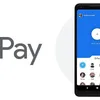Google Vice President Caesar Sengupta to step down from the company
Caesar Sengupta spent 15 years at Google and has been part of several initiatives like payments, next billion users, Chrome OS, among others.
Caesar Sengupta, the 15-year-old veteran at , and the key executive who drove projects of the search giant such as Next Billion Users and online payments, is leaving the company.
This announcement was made by Caesar on social media platforms but he has not decided on his future plans.
“I haven’t decided what I will start next. I am going to take some time to chill, talk to interesting people, reconnect with the external world and ride my bike (my latest obsession, picked up during the lockdown)!” Caesar said in his Linkedin post.
Caesar, whose last designation at Google was "Vice President and General Manager - Payments and Next Billion Users (NBU) Initiative", has been key to several projects of the company.
These included Chrome OS, Next Billion Users, Google Pay, among others. In fact, Google Pay is now the second-highest transacted third payment app on UPI in India.
He was also an integral part of NBU, which is an initiative by Google to build products for the next wave of internet users, especially in regions whose first point of contact online is through the mobile phone.
Caesar was also a key participant at the 11 edition of TechSparks, flagship event, where he spoke about NBU.
“There are huge differences in these new users from what we’d seen in traditional models from the West,” Caesar had said, “Yet their aspirations and wants were the same as anyone else in the world. They want it more visually. They want more relationships. They want more video. They want more in their vernacular. They want a hybrid language.”
Internet Saathi is another key initiative of Google where it aims to bridge the online gender divide. On this, Caesar noted, “When we embarked on making the internet more inclusive, we noticed that women tend to use less internet. In 2015, only one out of every 10 Internet users in rural India was a woman. We wanted to change that and bridge the online gender divide in rural India with the Internet Saathi programme.”
Edited by Saheli Sen Gupta








